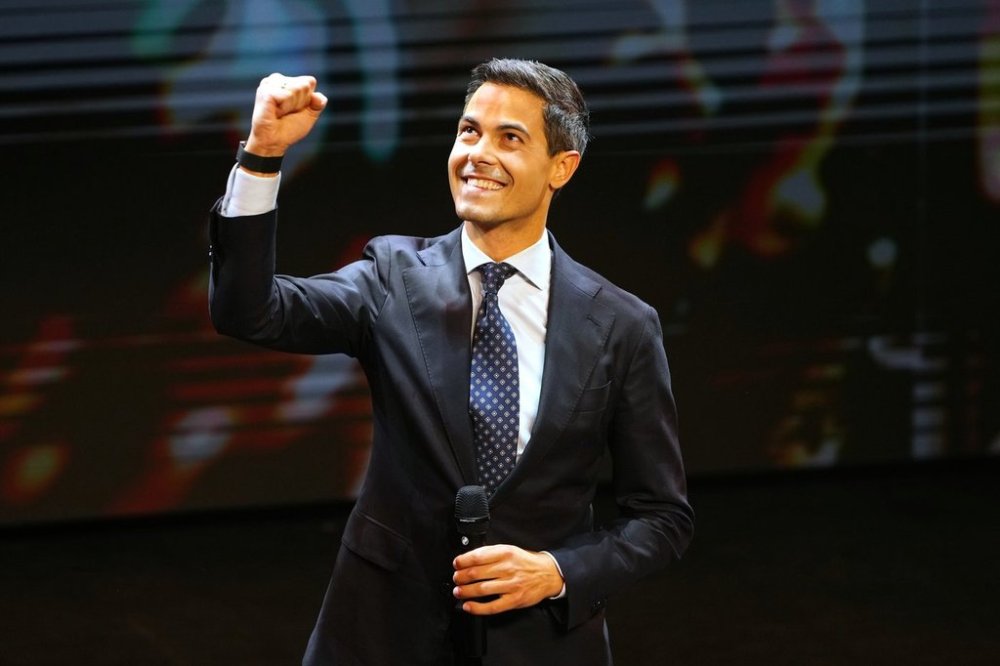The main takeaways from the Netherlands’ nail-biter elections, with the result still in the balance
Advertisement
Read this article for free:
or
Already have an account? Log in here »
To continue reading, please subscribe:
Monthly Digital Subscription
$0 for the first 4 weeks*
- Enjoy unlimited reading on winnipegfreepress.com
- Read the E-Edition, our digital replica newspaper
- Access News Break, our award-winning app
- Play interactive puzzles
*No charge for 4 weeks then price increases to the regular rate of $19.00 plus GST every four weeks. Offer available to new and qualified returning subscribers only. Cancel any time.
Monthly Digital Subscription
$4.75/week*
- Enjoy unlimited reading on winnipegfreepress.com
- Read the E-Edition, our digital replica newspaper
- Access News Break, our award-winning app
- Play interactive puzzles
*Billed as $19 plus GST every four weeks. Cancel any time.
To continue reading, please subscribe:
Add Free Press access to your Brandon Sun subscription for only an additional
$1 for the first 4 weeks*
*Your next subscription payment will increase by $1.00 and you will be charged $16.99 plus GST for four weeks. After four weeks, your payment will increase to $23.99 plus GST every four weeks.
Read unlimited articles for free today:
or
Already have an account? Log in here »
THE HAGUE, Netherlands (AP) — Votes were still being counted in the Netherlands on Thursday morning after a nail-biting election that still leaves no clear picture as to what kind of government might be formed in one of the European Union’s founding countries.
Here are some of the main takeaways from the polls:
Winds of change

Regardless of the final result, the Netherlands has swung back to the political center. The hard right party of anti-Islam lawmaker Geert Wilders lost almost a third of the seats it secured last time in 2023. Indeed, all four parties in the coalition that Wilders pulled the plug on to force these snap elections lost ground, but none suffered losses worse than his. After exit polls were announced, Wilders said he had no regrets. “We still have 1.7 million voters and are still a very big party in the Netherlands,” he said.
Face of change
Although they could still lose by a nose, the “winners” of the polls were the center-left D66 party and its 38-year-old leader Rob Jetten. Jetten, who will marry his hockey-playing Argentine partner next year, cut a young and dynamic figure. Supporters chanted “Yes, we can,” as the former climate minister took the stage after the exit polls were announced. If the four biggest mainstream parties stick to their vow not to govern with Wilders, then Jetten is likely to take top office, becoming the Netherlands’ first openly gay prime minister.
No leadership change
Another party that made surprising gains was the People’s Party for Freedom and Democracy, under the leadership of a former refugee from Turkey, Dilan Yeşilgöz-Zegerius. The VDD was rocked by Wilders’ party in 2023, and had been tipped to lose seats this time. But the party of the Netherlands’ longest-serving prime minister, Mark Rutte, is set to take third spot. Yeşilgöz-Zegerius’s time at the helm looked in question before the polls. Now the 48-year-old Dutch liberal she says she hopes to be part of a center-right government.
Plus ça change
An astonishing 27 parties were listed on the bathmat-sized ballot papers that voters struggled to squeeze into boxes at polling stations in these elections. Of them, at least four are likely to be required to form a coalition. The same as last time. Wrangling over policies and ministries or ministry portfolios is sure to drag on for weeks, if not months. The next government seems likely to coalesce around the political center, but just to the right or to the left, remains the question. This is nothing new for the Netherlands, but it still does not augur well for a stable government that can easily chaperone legislation through parliament.
Change must come
Despite the neck-and-neck race, one leader who saw the writing on the wall early was the head of the newly formed center-left bloc: former Dutch foreign minister and European Commission climate czar Frans Timmermans. His merged Labor Party-Green Left party lost four seats compared to 2023. Going into the polls, Timmermans insisted that he wanted to be prime minister. Instead, he resigned and appeared to bring down the curtain on his political career. “It is time for me to step back and give the leadership to the next generation. That is what a leader should do,” he told supporters.

